If your DM doesn't allow these spells and items, they are a coward.
Don't wanna be here? Send us removal request.
Text
why are cyberpunk tabletop things so obsessed with decency and personhood being tied to how many surgeries you haven’t had
128K notes
·
View notes
Text
In particular, spells costing more than four mana; tactics and strategies hinging on such spells. These things don't exist in gameplay, even though the cards are right there.
"But just last week I-" Stop. I don't care. I'm talking about competitive events and tournaments. If you were able to e.g. fire the Legacy Weapon at a tournament, it's because your opponent got horribly mana- or spell-screwed. That's a fluke, that's not main sequence gameplay.
I think the thing that really cooked me on MTG was learning the mana curve.
Like. Getting out mana has a time cost, and time is so very short, because your sweaty-ass fun hating opponent has a plan that will wind up the game on turn four.
So there are just vast wodges of the game that only exist in theory — because progressing a game to the point where those things actually becomes possible requires a huge failure cascade of tactics from your opponent.
3 notes
·
View notes
Text
new trait:
postprocessing N
your vision passes through some kind of fancy magical or even technological image processing before it reaches your brain. possibly in several layers.
you get -N to Perception checks involving vision on rounds where you move more than a few inches (poor color correction, motion blur, misfocusing, etc), but +N to Perception checks involving vision on rounds where you hold still or pivot slowly and smoothly. This may take a dc 15 dex check if you're under stress or in combat.
new trait: midnight watch N
you hear stuff weird.
get -N on Perception checks involving sound whenever there's a loud or startling noise.
if you take energy damage with the sonic type, make a Concentration check (dc half the final damage after mitigations and resistances &c, plus N) or be dazed and deafened for N/2 rounds.
get +N on perception checks involving sound when: the sound doesn't have a visible source, someone within 30 feet failed a perception check to hear the sound in the last two rounds, or the sound is obscured by other sounds of similar intensity.
these are unnamed mix-and-match cumulative bonuses: an out of sight sound against obscuring ambient noise that a party member failed to hear would grant +(3*N) to the perception check of the character with midnight watch.
0 notes
Text
as dungeon master i have put a 140 percent tariff on characters with a tortured past who watched their parents die when a certain monster raided their village and now theyre out for revenge
2K notes
·
View notes
Text
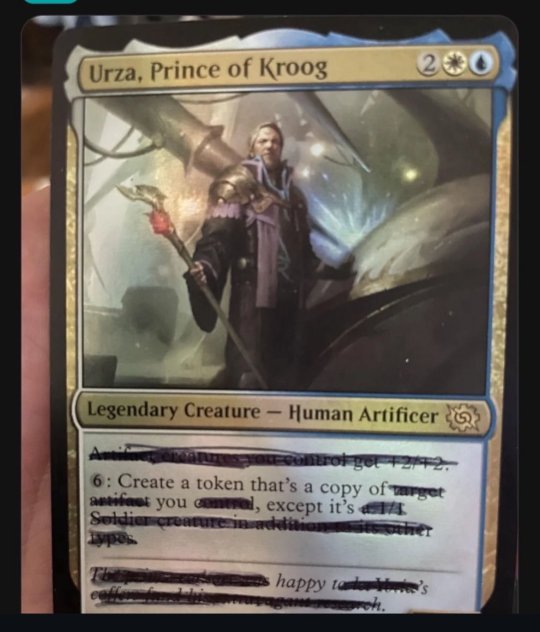
Today's Card Is: Urza, Prince of Kroog
879 notes
·
View notes
Text
All that said? I definitely want to write an npcs supplement someday describing a well established team of ecoterrorist runners - two or three adepts, a shaman, a mage, and a technomancer (probably a drone specialist) who all share the Cyberware Allergy (Severe) quality.
Player looking at the Food Allergy flaw: "Oh this looks fun! We could dig into some stories about food hygiene, develop related contacts, have runs that are some form of chasing edible groceries, banter about technofantasy cooking - this is gonna be so wholesome and fun~"
GM looking at the Food Allergy flaw: "Oh you want a mandatory High cost category for your lifestyle expense. (And constant-wear anti chem gear if it's a Severe allergy.) Okay."
This is a weird one. Usually I'm like "let players do stuff" but food allergy is almost deliberately confusing as described above. I don't -recommend- banning this quality — let players do stuff — but I'd certainly -sanction- banning this quality. It's gonna work better in a more sandboxy kind of game. If the GM has any particular narrative in mind, allergies are either an integral part of it, or they're in the way.
3 notes
·
View notes
Text
Player looking at the Food Allergy flaw: "Oh this looks fun! We could dig into some stories about food hygiene, develop related contacts, have runs that are some form of chasing edible groceries, banter about technofantasy cooking - this is gonna be so wholesome and fun~"
GM looking at the Food Allergy flaw: "Oh you want a mandatory High cost category for your lifestyle expense. (And constant-wear anti chem gear if it's a Severe allergy.) Okay."
This is a weird one. Usually I'm like "let players do stuff" but food allergy is almost deliberately confusing as described above. I don't -recommend- banning this quality — let players do stuff — but I'd certainly -sanction- banning this quality. It's gonna work better in a more sandboxy kind of game. If the GM has any particular narrative in mind, allergies are either an integral part of it, or they're in the way.
3 notes
·
View notes
Text
I think the thing that really cooked me on MTG was learning the mana curve.
Like. Getting out mana has a time cost, and time is so very short, because your sweaty-ass fun hating opponent has a plan that will wind up the game on turn four.
So there are just vast wodges of the game that only exist in theory — because progressing a game to the point where those things actually becomes possible requires a huge failure cascade of tactics from your opponent.
3 notes
·
View notes
Text
When I was in my teens, I used to make an entire magic system with 360+ unique spells, ordered in magic schools and categories, and it boggles my mind that I basically reinvented DnD mechanics, even down to metamagic.
I wanted to make a wiki about it but I don't have time for it.

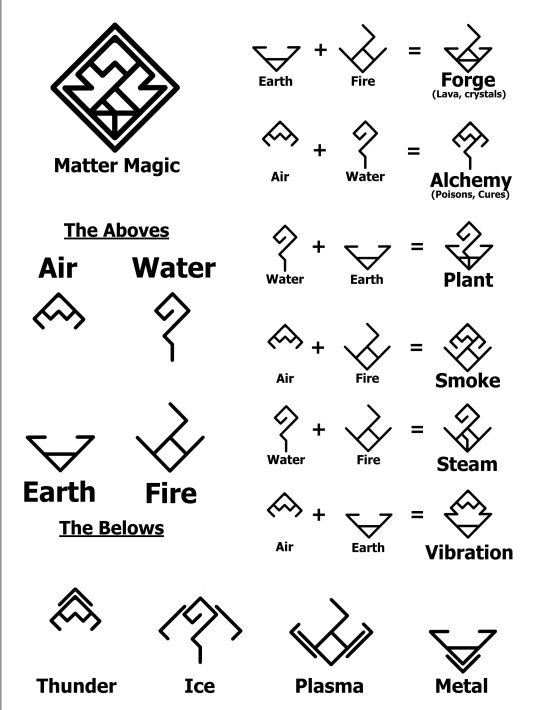
The point was to try to encompass every "superpower" I could think of into a magic system.
I even got lore related to it all, I'm pretty sure I'm gonna simply reuse it all for OC worldbuilding. Ngl the fun part was naming all the spells, symbols and coming up with the logic of it all.
25K notes
·
View notes
Text
Wait, I'm not done yet.
I am utterly mystified that anyone can simultaneously understand that boardwipes exist and still find this an enjoyable game to play. "Oh, it looks like I'm losing, so I blow up all your creatures you spent the last three turns getting out. And all mine too, just so it looks fair."
Absolutely fucking deranged gameplay. Core part of MTG. Inconceivable that anyone puts up with it.
Inconceivable. Throw away all your cards and play anything else.
Been seeing a lot of MTG posting lately.
My esteemed colleagues. MTG has board wipes. And it's expensive. Don't play that shit. It is anti-fun and it will run off with all your fucking money.
1 note
·
View note
Text
Been seeing a lot of MTG posting lately.
My esteemed colleagues. MTG has board wipes. And it's expensive. Don't play that shit. It is anti-fun and it will run off with all your fucking money.
#once upon a time I tried a combo deck#then and only then did I find out about shatterstorm jokelhaups exterminatus wrath of god etc etc etc etc#why anyone plays this nonsense is a total mystery to me
1 note
·
View note
Photo
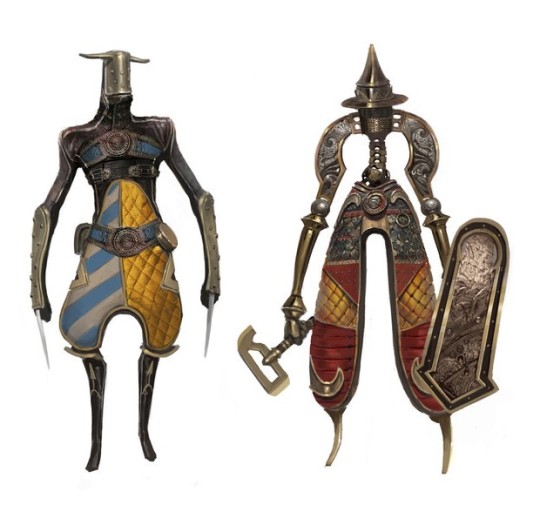
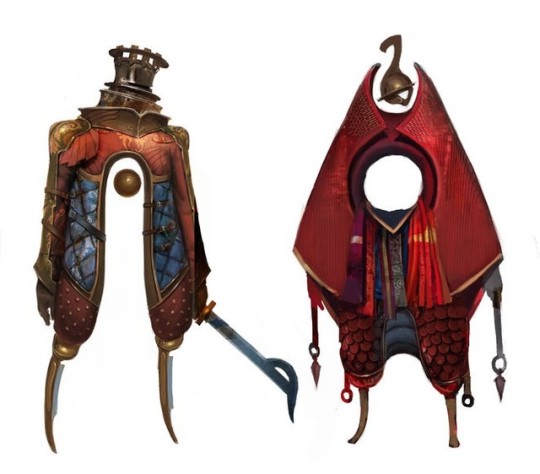
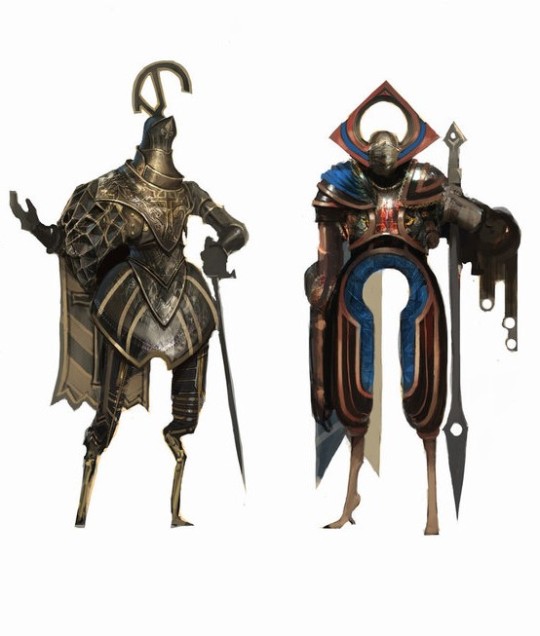
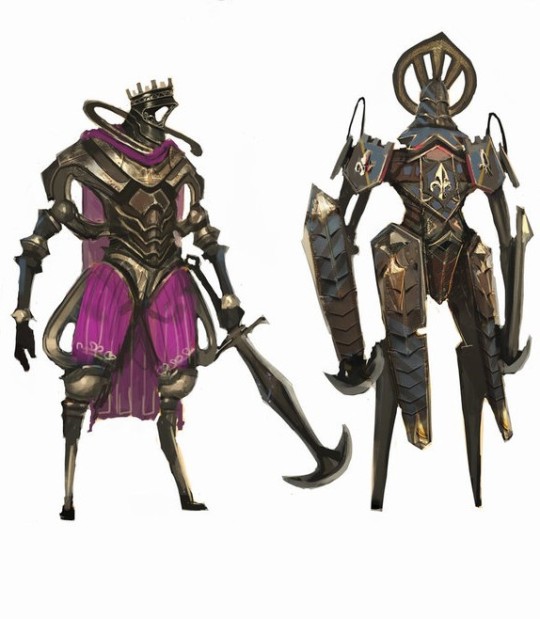
Weird Knights by Pierre Raveneau
18K notes
·
View notes
Text

Bone devils wielding huge bone hooks patrol the upper circles of Hell (Kevin Siembieda, for Geoffry O Dale's AD&D adventure Inferno, Judges Guild, 1980)
89 notes
·
View notes
Text
So apparently they took orcs out of the new Monster Manual, and I get their reasoning. They’re in the Player’s Handbook now, and none of the others from that book, like elves or dragonborn, are in the Monster Manual.
But I think this was a mistake. There was actually another solution, something that literally every other edition of the game did. You want to be a return to the old ways, don’t you, 5e? I know you do you nasty little freak. So here’s what you should have done:
Put the other ones back in the Monster Manual.
3K notes
·
View notes
Text
Mirror matches need to mean something.
If your villain just happens to be a more terrible version of a character in your troupe, there needs to be a reason for that. Double if that villain then fixates on that same character. Triple if this happens more than once with different protagonist/antagonist pairs.
It can be fun. I'm not saying don't do it. I'm saying don't do it unless you can make sure it serves the story.
0 notes
Text
DnD Character Concept: A Cleric who insists stubbornly and earnestly that their obviously evil patron deity (I'm thinking Lolth or Asmodeus but really any Evil Greater God would do) is actually Good and Benevolent and Just and dismisses all evidence to the contrary as slander from rival deities. Their proof to their claim? Using their divinely granted powers for the most intensely Good tasks and quests they can find: feeding the hungry, protecting the weak, curing the sick- all done in the name of their Terrible Dread Lord and without any expectation of compensation or string attached.
The deity in question is all "???" but keeps granting the cleric power because all that free worship and influence from the people who now pray to them is nice, and hey if the cleric wants to put in the leg work to launder the deity's reputation what reason do they have to say no?
Only it turns out that the cleric is actually playing 4D chess because of the way faith works in Faerun (and most DnD settings). As more and more worshipers start believing The Terrible Dread Lord is actually a Good and Kind and Noble god they start to be influenced by that to become Good and Kind and Noble. Slowly but surely they find themselves warping to match the perception of the masses. It starts by just giving a few random blessings out of what they think is pity, or maybe sending a sign to help someone who is lost on what the deity insists is a whim....but it snowballs until you have Lolth smiting down slavers or Asmodeus sending out devil's to drag down a tyrant to the depths of hell and then they realize 'oh oh no' but by then it's to late: the religious reform movement within their flock is too massive and been ignored for too long as benign. They can't just turn around and smite their own followers- not only because it's tacky but because they feel... compassion and responsibility for those that look to them for guidece.
And then you have the cleric, who at level twenty is literally their most powerful agent and also the high priest of this out of control heresy smugly sipping their tea because, because they where right all along. Their faith in their deity is vindicated- after all what is faith if not believing in something so strongly, against all evidence, that it becomes truth onto itself?
14K notes
·
View notes
Text
declare backwards, resolve forwards.
now init means something. you can no longer react to someone faster than you.
reroll init every round.
now it's no longer predictable, everyone has to pay attention all the time instead of knowing you're gonna have a fixed amount of non interactive dead time after you go.
automate the above. a spreadsheet is fine. now you don't blow a bunch of time hand computing the above traits.
inventory/weight/volume management IS quite mid, tho. give your mage the tools to make it go away.
even the dumbest dm I ever met still managed to throw in a belt with permanent Ant Haul on it in the low level arc so we wouldn't have to dick with carrying limits so much.
One of these days we will get a second high budget and high-quality CRPG created by people who understand that there isn't actually some metaphysical law requiring that they make their core gameplay loop mediocre tactical combat and inventory management.
494 notes
·
View notes